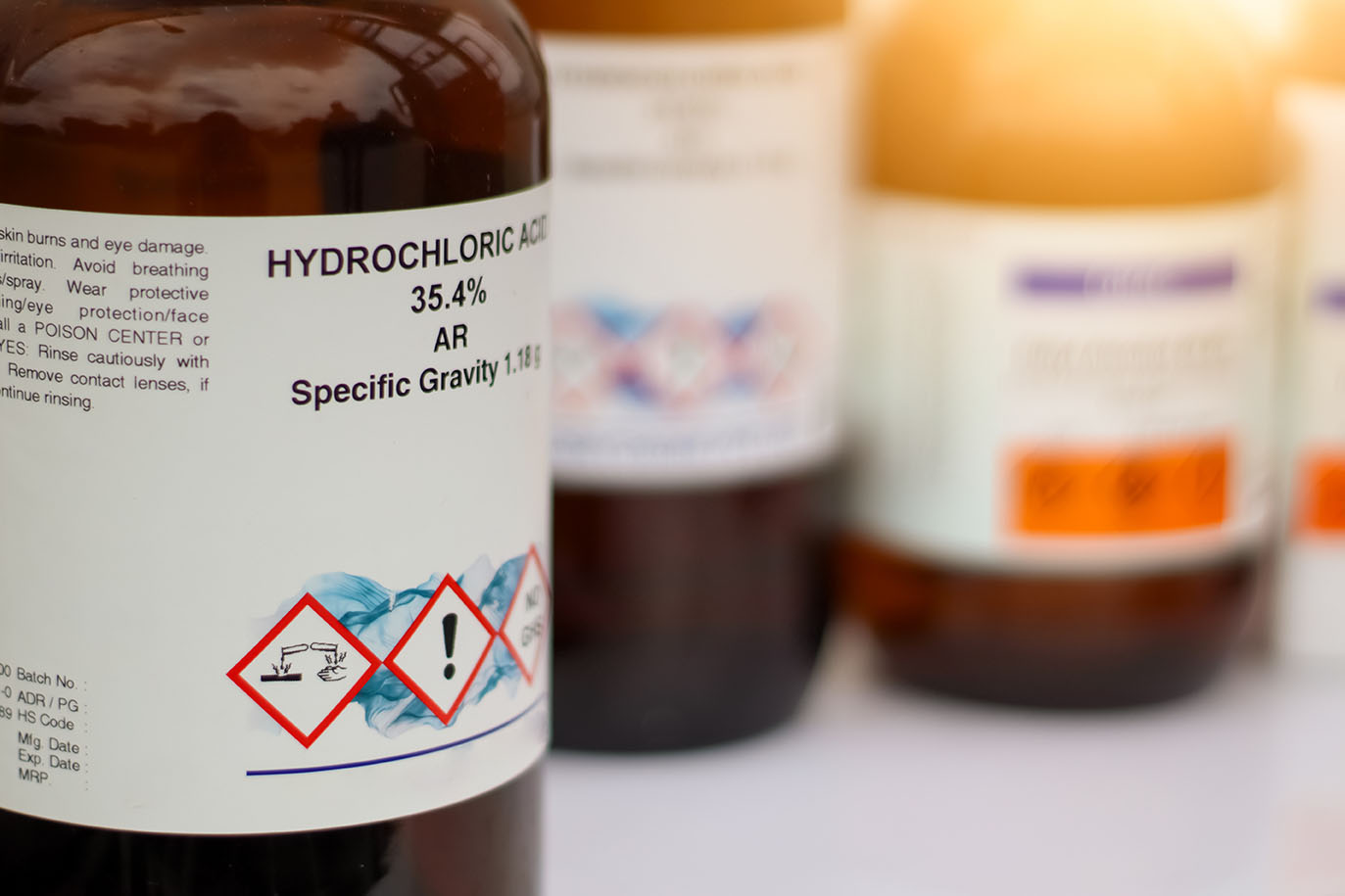
acid
Definition
An acid is a substance that donates a proton (H+) to another substance. This means that acids have an excess of hydrogen ions (H+). Acids can be identified by their sour taste, their ability to dissolve metals, and their ability to turn litmus paper red.
The most common way to measure the acidity of a substance is with a pH scale. The pH scale ranges from 0 to 14, with 7 being neutral. Substances with a pH below 7 are acidic, while substances with a pH above 7 are basic.
Some common acids include:
- Hydrochloric acid (HCl): This acid is found in stomach acid and is used in industrial applications.
- Hydrochloric acid (HCl)
- Sulfuric acid (H2SO4): This acid is a strong oxidizing agent and is used in batteries and in the production of fertilizers.
- Sulfuric acid (H2SO4)
- Nitric acid (HNO3): This acid is a strong oxidizing agent and is used in the production of explosives and fertilizers.
- Nitric acid (HNO3)
Acids are important in many chemical reactions and are used in a variety of applications, including:
- Food preservation: Acids are used to preserve food by killing bacteria.
- Cleaning: Acids are used to clean surfaces by dissolving dirt and grime.
- Industry: Acids are used in the production of chemicals, metals, and plastics.
How can the word be used?
In biology, the word acid can refer to a substance that is produced by cells and helps to regulate the pH of the body.

Different forms of the word
Noun:
acid (plural: acids).
a substance that donates a proton (H+) to another substance.
a sour-tasting liquid that can dissolve metals.
Adjective:
- acidic.
- having the properties of an acid.
- sour.
Verb:
- acidify.
- to make something acidic.
Etymology
The word "acid" can refer to a substance that is produced by some insects and that can be used for defense or for communication. For example, some ants produce formic acid, which they can spray at predators to deter them. Other insects, such as bombardier beetles, produce a mixture of acids that can be ignited to produce a hot, boiling spray that can also deter predators.
Question
What is an acid?
AQA Science Exam Question and Answer
Question: Some insects produce acids that they use for defense.
a) Describe how the acid produced by ants can be used for defense.
b) Explain how the acid produced by bombardier beetles can be used for defense.
c) Discuss the advantages and disadvantages of using acids for defense in insects.
This question would test your understanding of the properties of acids and how they can be used by insects for defense. You would need to be able to explain the chemical reactions involved in the production and use of acids by insects, as well as the advantages and disadvantages of this type of defense.
Here are some possible answers to the question:
a) Ants produce formic acid, which they can spray at predators to deter them. The acid can cause a burning sensation in the predator's eyes and skin, making it difficult for them to see or move.
b) Bombardier beetles produce a mixture of acids that can be ignited to produce a hot, boiling spray that can also deter predators. The spray is so hot that it can cause burns and even kill predators.
c) The advantages of using acids for defense include the fact that they are effective at deterring predators and can even kill them. However, there are also some disadvantages to using acids for defense. For example, the acids can also harm the insect that produces them, and they can also damage the environment.